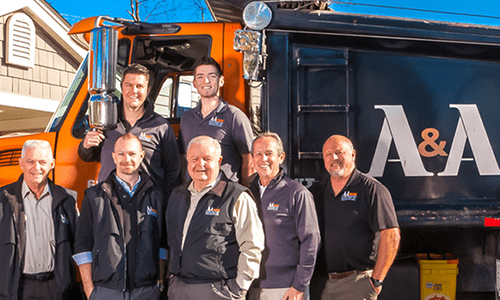As Ella Fitzgerald (and later, Sublime) said, “It’s summertime, and the livin’ is easy.” Moods are generally casual, the weather is as good as it’s going to get, and there are countless occasions that justify a social gathering. At the risk of making general assumptions, I’d venture a guess that many of our beloved summer soirees include the availability of food and drink. If I ask you to close your eyes and imagine a summer party, what specific imagery comes to mind? Smoke billowing from a barbeque grill? A few Igloo coolers overflowing with ice, bottlenecks of at least a dozen beers rising above the top?
For many, this imagery brings positivity to mind. For residents and board members of community associations, it’s particularly important to know the risks involved. Illinois has a clear law when it comes to making alcohol available at a social event. Even if a community association is not selling the alcohol, but merely providing it free of charge to fellow association residents, significant liability exposures are still present. Securing adequate insurance coverage is the responsibility of the association’s board members. So…is every association covered for this drink-sharing scenario?
An association may have “Host Liquor Liability” included in their insurance policy. Coverage for the retail sale of alcohol (basically acting like the community association is a bar/restaurant/liquor store) is almost always excluded from an association’s insurance policy. “Host Liquor Liability” will provide some protection if bodily injury or property damage arises from the consumption of alcohol that is provided for free at an event. To paint the picture, let’s say a resident has a few too many beverages at an association’s annual summer barbecue. He then decides to get into his car to pick up a friend. Should he cause an accident, the association can be liable for the damages.
“Host Liquor Liability” comes with a limit, and the limit can vary greatly amongst insurers and policies. Things get a little complicated if tickets are purchased and traded for food or drink, or if donations are requested in exchange for entry into the event/access to the libations. The association should always consult their attorney if any events that may include alcohol are on the table. If it is not clear as to whether an association’s policy provides “Host Liquor Liability,” the insurance agent should be contacted immediately. In some cases, this coverage is automatically included, and does not add to the overall cost of insurance.
To make matters more complicated, most community associations are a vibrant mix of residents young and old. Families with children of all ages often partake in the festivities provided by the association. It’s important to understand that the way Illinois sees it regarding social host liquor laws, to “furnish” alcohol, simply means to make alcohol available. It isn’t abnormal for teenagers to try and sneak a few bottles from the “Adults-only” cooler when they think no one is looking. Of course, this isn’t endorsed by adults, and there can be clear rules posted that underage drinking will not be tolerated. But at the end of the day, if the drinks were accessible, and problems arose, the association may be responsible. In general, life would be easier if everyone was responsible for the behavior of their own children. Unfortunately, the association is at risk regardless of the parents’ involvement, or lack thereof.
To combat the risk, community associations can choose to only allow alcohol on a “BYOB (“bring your own bottle/beer”) basis. This may not absolve the association of liability exposure entirely, but it does help in placing some of the negligence back on the individual that “BYOB-ed.” Also, community associations should always mandate that residents provide annual evidence of their own homeowners insurance, specifically naming the association as additionally insured. In many if not most cases, adding the association to an individual’s policy does not result in an increased cost to policyholder. Most importantly, board members and community management should always ensure that insurance limits are adequate, and that the necessary endorsements apply to the policy in force. These strict practices may rain on a parade or two, but for as long as communities wish to host social gatherings, people will certainly wish to bring alcohol. Mitigating the risk allows the association to be in position to enjoy these events annually, for years to come. Now that I’ve ruined the image of a summer party, who could use a drink?




 CAI - Illinois Chapter
CAI - Illinois Chapter 

 Mark A. Waldman
Mark A. Waldman 

